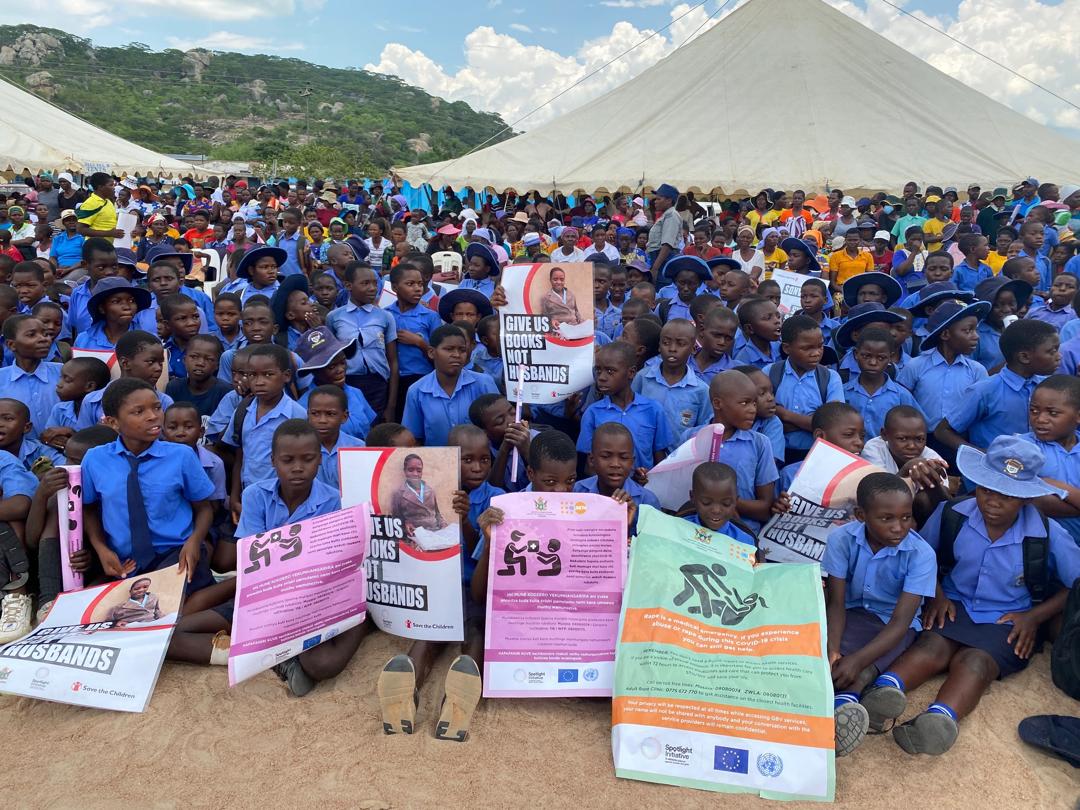|
Getting your Trinity Audio player ready...
|
Writes Sirak Gebrehiwot
As the world celebrates the International Day of the Girl Child, the theme “Girls’ Vision for the Future” aligns closely with the ambitions and hurdles faced by girls in Zimbabwe. This theme underscores the pressing need for joint efforts and exemplifies a steadfast hope energized by the voices and visions of girls globally.
In Zimbabwe, girls aspire to a future where their voices catalyze transformational change, becoming the architects of their destinies. However, challenges like teenage pregnancy and child marriage form substantial barriers to their complete involvement and empowerment. These challenges not only impede their personal growth but also restrict their contributions to society and their country in sustainable development including social, economic, environmental, and democratic governance.
Through the UN Spotlight Initiative, generously funded with 34 million USD from the European Union and implemented by the Government of Zimbabwe, UN Agencies, and Civil Society Reference and Youth Groups, Zimbabwe has made notable progress in tackling gender-based violence and harmful practices. This initiative symbolizes hope, showcasing the strength of community mobilization, traditional leaders, and a high-level political compact championed by President Emmerson D Mnangagwa, focusing on protecting women’s and girls’ rights through legal and institutional frameworks and deliberate resource allocation in the national budget.
Despite these challenges, Zimbabwean girls are advancing with resilience and optimism, envisioning a thriving future. They are breaking barriers and defying stereotypes, participating in community movements, advocating for educational access, and raising awareness against harmful practices. These girls are not just seeking change; they embody it, creating impacts that will resonate for generations.
At the community level, there is an increasing acknowledgment of the significance of girls’ education and empowerment. With support from programmes like the recently concluded Spotlight Initiative and the ongoing Together for Sexual and Reproductive Health Rights funded by the Government of Sweden, local leaders, and parents are opposing early marriages and endorsing policies that protect girls’ rights. This collective effort is vital to addressing and reducing gender-based violence while empowering girls to follow their dreams.
Furthermore, Zimbabwean girls share a unified vision for their future: a landscape where quality education is accessible to all, where digital literacy is a right rather than a privilege, and where gender equality is customary. Many girls aspire to become leaders, educators, and innovators, contributing to a more just and prosperous society for everyone.
Globally, challenges remain in education and digital connectivity for girls, yet Zimbabwean girls remain hopeful. They believe that with adequate support, resources, and opportunities, they can overcome these challenges. They recognize the importance of achieving the Sustainable Development Goals (SDGs), particularly those focused on gender equality. Enabling girls to be equal partners in global development can foster inclusive economic growth and sustainable societal advancement.
The International Day of the Girl Child is a testament to the potential within every girl, and the collective responsibility to support them.
Zimbabwe is at a critical juncture, where the dreams of its girls, strengthened by continuous national efforts under the 2021-2025 National Development Strategy and Vision 2030 to become an upper-middle-income society, community support, and global initiatives, have the potential to shape the future. By investing in girls today, we promise a more fair and prosperous future, maximizing the strength and creativity of every girl.
Sirak Gebrehiwot is the UN Partnerships and Development Finance Advisor in the UN Resident Coordinator’s Office.






